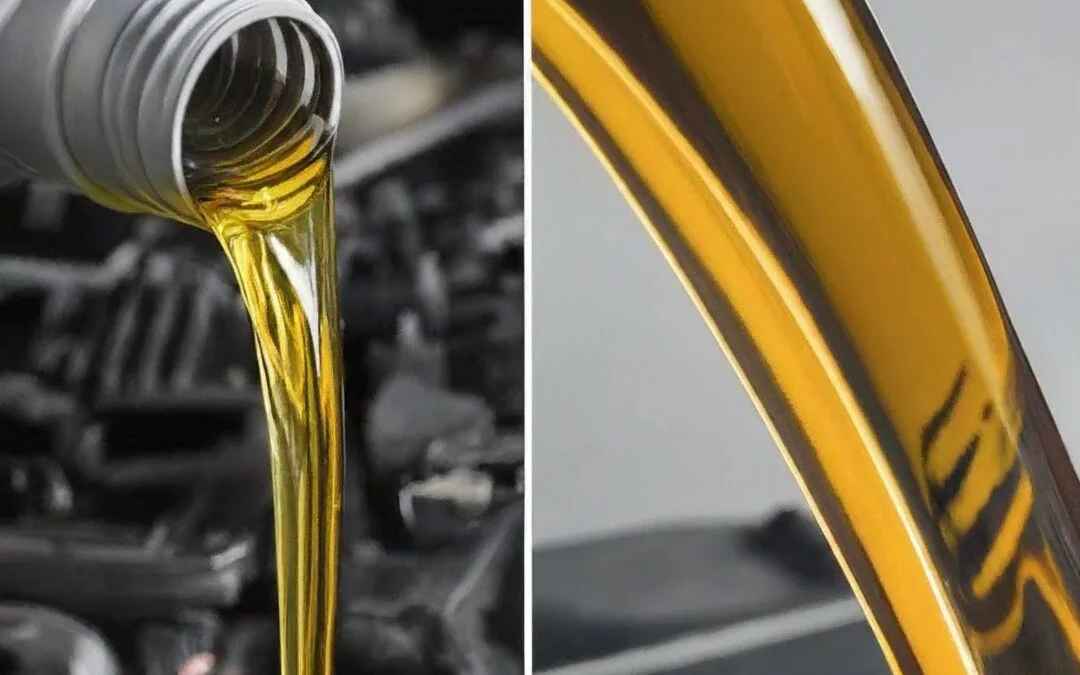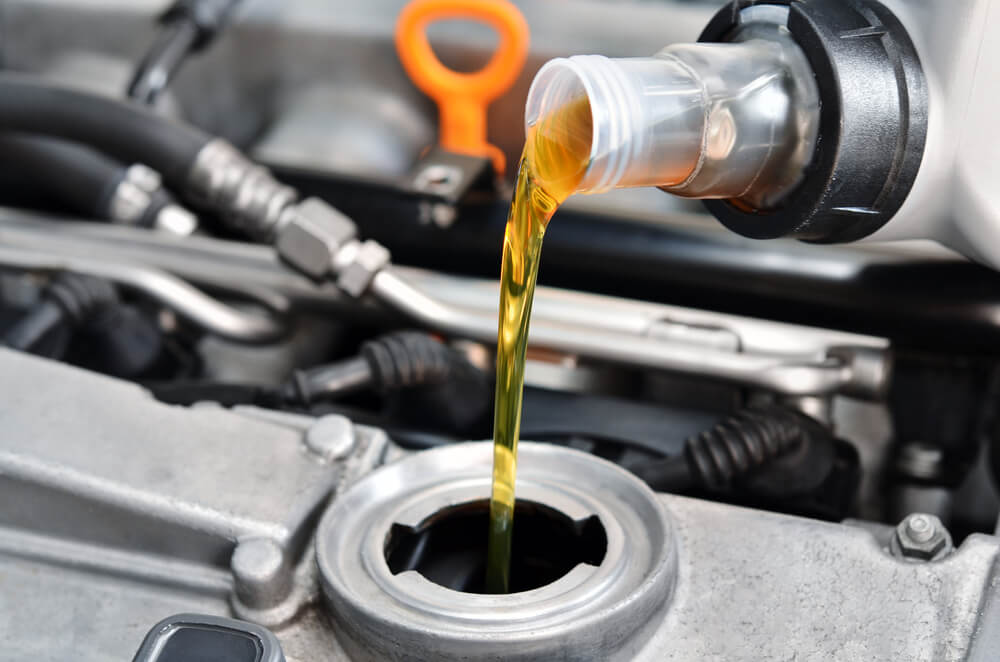Title: Why Is Motor Oil Toxic? Exploring the Environmental and Health Impacts
Introduction:
Motor oil is a ubiquitous and essential fluid that keeps the world’s engines humming smoothly. It flows through the intricate network of an engine, lubricating, cooling, and protecting its intricate moving parts. Yet, beyond its role in vehicle maintenance, motor oil harbors a hidden danger that often goes unnoticed: its toxicity. Beneath the surface of its slick and functional facade lies a range of compounds that can be harmful to both the environment and human health. In this blog, we embark on a journey to uncover the reasons why motor oil is toxic, exploring the chemical composition that makes it hazardous and delving into the far-reaching consequences it has on our ecosystems and well-being. As we navigate the intricate web of motor oil toxicity, we will also examine the regulations, safety measures, and sustainable alternatives that can help mitigate its harmful effects, emphasizing the critical need for responsible handling and disposal of this indispensable yet potentially perilous liquid.
Composition of Motor Oil
Motor oil is not a simple, single-component substance; rather, it’s a carefully formulated blend of various components that work in harmony to provide the necessary lubrication and protection for an engine. Understanding the composition of motor oil is essential to grasp why it can be toxic to the environment and human health.
1. Base Oil:
At the heart of any motor oil is the base oil, which typically makes up about 70-90% of the total composition. Base oil can be derived from different sources, including crude oil or synthetic sources like natural gas. The type of base oil used significantly influences the properties of the motor oil.
- Conventional Base Oil: Derived from crude oil, it contains impurities and is often referred to as mineral oil. This type of base oil requires more additives to enhance its performance.
- Synthetic Base Oil: Manufactured through chemical processes, synthetic base oils offer superior performance and stability. They are known for their high-temperature resistance and reduced sludge formation.
- Semi-synthetic Base Oil: A blend of conventional and synthetic base oils, this type combines some of the benefits of both.
2. Additives:
To enhance the base oil’s properties and make motor oil suitable for modern engines, various additives are incorporated. These additives serve specific functions, and their inclusion is what can make motor oil potentially toxic:
- Detergents and Dispersants: These additives help keep the engine clean by preventing the formation of sludge and deposits. However, they can contain compounds that are harmful when released into the environment.
- Anti-wear Agents: These additives reduce friction between moving engine parts, prolonging engine life. Zinc dialkyl dithiophosphate (ZDDP) is a common anti-wear agent, but it can be toxic to aquatic life when disposed of improperly.
- Viscosity Index Improvers: These additives help maintain the oil’s viscosity across a range of temperatures. They are crucial for engine performance but can affect oil’s biodegradability.
- Pour Point Depressants: These additives prevent oil from thickening in cold temperatures. They can also impact the oil’s biodegradability.
- Friction Modifiers: Included to reduce friction and improve fuel efficiency. However, their environmental effects need consideration.
- Anti-Foaming Agents: Prevent excessive foam formation, which can hinder proper oil circulation. These additives are generally not harmful to the environment.
- Corrosion Inhibitors: Protect engine components from corrosion, extending their lifespan. Some corrosion inhibitors contain heavy metals, which can be harmful if released into the environment.
- Antioxidants: Extend the oil’s lifespan by preventing oxidative breakdown. These compounds are generally safe but can be a concern if oil is not disposed of properly.
Understanding the composition of motor oil sheds light on why it can be toxic. While many of these additives are necessary for efficient engine performance, they can have adverse effects on the environment if not managed and disposed of responsibly. In the following sections, we will delve deeper into the environmental and health impacts of motor oil toxicity and explore ways to mitigate these effects through regulations and sustainable practices.
Environmental Impact of Motor Oil
The environmental impact of motor oil is a significant concern due to its potential to harm ecosystems, contaminate water sources, and contribute to air pollution. Understanding these impacts is crucial for developing strategies to mitigate the harm caused by motor oil.
1. Oil Leaks and Spills:
One of the most visible and immediate environmental impacts of motor oil is the result of leaks and spills. Whether from vehicles, industrial machinery, or improper disposal, motor oil that escapes containment can have devastating consequences:
- Soil Contamination: When motor oil seeps into the soil, it can disrupt the soil’s natural balance, harming plants and microorganisms. This contamination can persist for years, inhibiting plant growth and affecting the overall health of the ecosystem.
- Vegetation Damage: Motor oil is toxic to many plants, and contact with it can lead to wilting, stunted growth, and in some cases, death. It can also impair a plant’s ability to absorb nutrients from the soil.
- Contamination of Water Bodies: Rain can wash motor oil from roads and parking lots into nearby water bodies, leading to water pollution. Oil on the surface of water can reduce oxygen levels, harming aquatic life. Even small quantities of oil can have a significant impact on fish and other aquatic organisms.
2. Air Pollution:
Motor oil contributes to air pollution through emissions from vehicles and industrial processes:
- Emissions from Vehicles: Combustion engines release volatile organic compounds (VOCs) and particulate matter into the atmosphere. These emissions can contribute to smog formation and have adverse effects on air quality and human health.
- Impact on Air Quality: Poor air quality resulting from motor oil emissions can exacerbate respiratory problems, especially in urban areas with heavy traffic. It can lead to an increase in respiratory illnesses such as asthma and bronchitis.
3. Long-Term Ecological Consequences:
The environmental impact of motor oil extends beyond immediate contamination:
- Effects on Wildlife: Motor oil pollution affects wildlife directly through ingestion or contact, leading to injuries, deformities, and population decline. Oil-coated birds and marine mammals are distressing examples of this impact.
- Aquatic Ecosystems: Oil can disrupt aquatic ecosystems by reducing oxygen levels, affecting the food chain, and causing long-term damage to aquatic habitats. This disruption can lead to a cascade of ecological consequences.
- Bioaccumulation and Biomagnification: Toxic components in motor oil can accumulate in the bodies of organisms. When predators consume contaminated prey, these toxins become concentrated, increasing the risk of harm to top predators, including humans.
Mitigating the environmental impact of motor oil requires a multi-pronged approach, including responsible use and disposal, stringent regulations, and the adoption of sustainable practices. It is essential for individuals, businesses, and policymakers to recognize the gravity of this issue and work collectively to reduce the harmful effects of motor oil on our planet. In the following sections, we will explore the impact of motor oil on human health and delve into regulatory measures and sustainable alternatives to address these concerns.
Human Health Impact of Motor Oil
While motor oil plays a crucial role in maintaining the performance of vehicles and machinery, its impact on human health cannot be ignored. Exposure to motor oil, both directly and indirectly, can have adverse consequences on our well-being. Here, we delve into the various ways in which motor oil can affect human health
1. Direct Exposure:
a. Occupational Hazards: Individuals working in the automotive industry, including mechanics and oil industry workers, are particularly vulnerable to direct exposure to motor oil. They often come into direct skin contact with motor oil, increasing the risk of skin disorders, irritation, and chemical burns.
b. Skin Contact: Prolonged or repeated skin contact with motor oil can lead to dermatitis, which manifests as redness, itching, and inflammation. Some individuals may develop allergies or sensitivities to the chemicals present in motor oil.
2. Inhalation:
a. Health Risks from Fumes: When motor oil is heated during engine operation, it can release fumes containing harmful compounds, including benzene, toluene, and xylene. Inhalation of these fumes can lead to respiratory issues such as coughing, wheezing, and exacerbation of pre-existing conditions like asthma.
b. Long-Term Consequences: Chronic exposure to motor oil fumes has been associated with more severe health problems, including lung cancer, cardiovascular issues, and neurological disorders.
3. Indirect Exposure:
a. Contaminated Water Supply: Improper disposal of used motor oil can lead to groundwater contamination. If this contaminated water enters the public water supply, it poses a risk to the health of consumers who may ingest or use it.
b. Food Chain Contamination: Motor oil that enters the environment can also affect the food chain. Aquatic organisms can accumulate oil-related toxins, potentially impacting the safety of seafood consumed by humans.
It is essential to recognize the health risks associated with motor oil exposure and take measures to minimize these risks. This includes following safety protocols for handling motor oil in occupational settings, wearing protective gear, and avoiding direct skin contact whenever possible. In addition, proper disposal of used motor oil is crucial to prevent environmental contamination and indirect health risks.
Regulatory bodies, such as the Environmental Protection Agency (EPA), have established guidelines and regulations to limit human exposure to harmful chemicals in motor oil. Compliance with these regulations is vital for safeguarding public health.
Understanding the human health impact of motor oil underscores the importance of responsible handling, disposal, and the pursuit of sustainable alternatives. By taking these measures, we can minimize the health risks associated with this essential yet potentially hazardous substance.
Regulations and Safety Measures for Motor Oil
The potential environmental and health hazards posed by motor oil have prompted the implementation of stringent regulations and the promotion of safety measures. These measures aim to mitigate the adverse effects of motor oil on ecosystems, public health, and the environment. Here, we delve into the key regulations and safety practices associated with motor oil:
1. Environmental Regulations:
a. Environmental Protection Agency (EPA): The EPA in the United States plays a pivotal role in regulating motor oil. It sets standards for the allowable levels of toxic additives and emissions from motor oil production and use. These regulations are designed to reduce the impact of motor oil on air and water quality.
b. Waste Disposal Regulations: Motor oil is considered hazardous waste if not disposed of properly. Many countries and regions have strict guidelines for the collection, recycling, and disposal of used motor oil. Violating these regulations can result in fines and penalties.
2. Safety Measures for Handling Motor Oil:
a. Personal Protective Equipment (PPE): Workers in the automotive industry, particularly mechanics and oil industry personnel, are advised to wear appropriate PPE, including gloves, safety goggles, and aprons, when handling motor oil to minimize skin contact and exposure to fumes.
b. Proper Storage: Storing motor oil in containers that are in good condition and designed for oil storage is crucial. This prevents leaks and spills that can contaminate the environment. Oil storage should also comply with local regulations.
c. Spill Prevention and Cleanup: Facilities that handle motor oil should have spill response plans in place. These plans outline procedures for containing and cleaning up spills promptly to minimize environmental damage.
3. Responsible Disposal:
a. Recycling Centers: Many regions have established collection points and recycling centers where individuals can drop off used motor oil for proper recycling. Recycling used oil helps prevent environmental contamination.
b. DIY Oil Changes: Individuals who change their own motor oil should follow proper disposal guidelines. This often includes placing used oil in sealed containers and taking it to a designated collection site.
4. Sustainable Practices:
a. Synthetic and Biodegradable Motor Oils: Promoting the use of synthetic and biodegradable motor oils can significantly reduce the environmental and health impacts of motor oil. These oils are designed to be less harmful to ecosystems and can be recycled more efficiently.
b. Regular Maintenance: Proper vehicle maintenance can reduce the likelihood of oil leaks and spills. Regularly checking for leaks and addressing them promptly can prevent environmental contamination.
Adherence to regulations and safety measures is essential to mitigate the potential harm caused by motor oil. Whether you’re an individual changing your car’s oil or a business involved in the automotive industry, responsible handling, disposal, and adherence to environmental regulations are key to protecting both human health and the planet. By following these guidelines, we can enjoy the benefits of motor oil while minimizing its negative impacts.
Alternatives and Sustainable Practices for Motor Oil
As concerns about the environmental and health impacts of traditional motor oil grow, there is an increasing focus on alternatives and sustainable practices that offer both performance and eco-friendliness. Here, we explore these alternatives and practices that can help reduce the negative effects of motor oil:
1. Synthetic Motor Oils:
- Synthetic motor oils are engineered from chemically modified base oils. They offer several advantages, including:
- Enhanced Performance: Synthetic oils provide better high-temperature stability, reduced friction, and improved fuel efficiency.
- Longevity: They typically have longer service intervals, reducing the frequency of oil changes.
- Reduced Environmental Impact: Synthetic oils generate fewer emissions and have a lower environmental impact compared to conventional oils.
2. Biodegradable Motor Oils:
- Biodegradable motor oils are designed to break down naturally in the environment, reducing long-term harm. Key features include:
- Environmental Friendliness: These oils are less harmful to ecosystems and water bodies, making them an excellent choice for areas with environmental sensitivities.
- Reduced Contamination: Biodegradable oils help prevent soil and water contamination in case of leaks or spills.
3. Regular Maintenance:
Proper vehicle maintenance is a sustainable practice that can extend the life of your engine and minimize the need for frequent oil changes. Regular maintenance includes:
- Timely Inspections: Identifying and addressing oil leaks promptly prevents environmental contamination.
- Air Filter Replacement: A clean air filter can improve engine efficiency, reducing the frequency of oil changes.
4. Eco-Friendly Disposal:
Proper disposal of used motor oil is critical for environmental protection. Sustainable disposal methods include:
- Recycling: Many recycling centers accept used motor oil. Recycled oil can be reprocessed and used again, conserving resources.
- Authorized Collection Centers: Utilize authorized collection centers for used oil disposal. These facilities ensure responsible handling and recycling of the oil.
5. Alternative Lubrication Technologies:
Emerging alternative lubrication technologies, such as solid lubricants and friction modifiers, are being developed to reduce the reliance on traditional motor oils. These technologies aim to decrease friction and wear, increasing engine efficiency while reducing the need for frequent oil changes.
6. Eco-Friendly Driving Habits:
- Adopting eco-friendly driving habits can reduce the overall consumption of motor oil:
- Proper Tire Inflation: Keeping your tires properly inflated can improve fuel efficiency, reducing the overall environmental impact of driving.
- Regular Maintenance: Ensuring your vehicle is well-maintained can improve fuel efficiency, reducing the need for frequent oil changes.
7. Sustainable Procurement:
When choosing motor oils, consider opting for products with environmentally responsible certifications or those endorsed by eco-conscious organizations. These products are often formulated with sustainability in mind.
Advocating for Responsible Practices:
As a consumer, you can advocate for responsible motor oil practices within your community and encourage businesses to adopt eco-friendly alternatives and practices. By embracing these alternatives and sustainable practices, we can significantly reduce the environmental and health impacts traditionally associated with motor oil. As technology continues to evolve, the future of motor oils may hold even more promising and sustainable solutions, allowing us to enjoy the benefits of internal combustion engines while minimizing their environmental footprint
Conclusion: Understanding Why Motor Oil is Toxic
In conclusion, motor oil, while indispensable for engine lubrication and performance, carries a hidden toxicity that can harm both the environment and human health. Its complex composition, including various additives and base oils, contains compounds that, when mishandled or disposed of improperly, can wreak havoc on ecosystems and pose health risks.
From oil leaks contaminating soil and water bodies to emissions contributing to air pollution, the environmental impact of motor oil is significant. Wildlife, aquatic ecosystems, and even the food chain can suffer from its long-term consequences. On the human front, direct exposure to motor oil can lead to skin disorders and irritation, while inhalation of oil fumes may result in respiratory issues and long-term health risks.
However, regulations, safety measures, responsible disposal, and sustainable alternatives offer hope for mitigating these dangers. By adhering to these practices and embracing eco-friendly motor oils, we can enjoy the benefits of motor oil without compromising the well-being of our planet and ourselves. It is incumbent upon us all to recognize the importance of responsible motor oil use and disposal, ensuring a cleaner, healthier future for generations to come.
Useful links:
https://www.scfuels.com/lubricant-toxicity/
Take Action Now!
If you’re concerned about the toxicity of motor oil and its impact on the environment and human health, it’s time to make a difference. Here are some steps you can take:
- Educate Yourself: Continue to learn about the composition of motor oil, its environmental effects, and how it can affect your health. Knowledge is the first step toward change.
- Responsible Use: If you’re a vehicle owner, make sure to schedule regular maintenance and keep an eye out for oil leaks. Responsible vehicle care can prevent environmental contamination.
- Proper Disposal: Never dispose of used motor oil haphazardly. Use authorized collection centers or recycling facilities to ensure it’s handled and recycled responsibly.
- Advocate for Change: Encourage your local community and businesses to adopt eco-friendly alternatives and sustainable practices when it comes to motor oil use and disposal.
- Support Research: Stay informed about advancements in motor oil technology and support research into even more sustainable alternatives.
By taking action today, you can play a role in reducing the toxicity of motor oil and protecting our environment and health for the future. Together, we can drive positive change.
Frequently Asked Questions (FAQs): Why Is Motor Oil Toxic?
What makes motor oil toxic?
Motor oil contains various chemical components, including additives and base oils. Some of these components, such as heavy metals, detergents, and anti-wear agents, can be harmful to the environment and human health when released or disposed of improperly.
2. How does motor oil affect the environment?
Motor oil can harm the environment through oil leaks and spills that contaminate soil and water, air pollution from engine emissions, and long-term ecological consequences like disruption of aquatic ecosystems and wildlife harm.
3. Can motor oil harm human health?
Yes, exposure to motor oil can harm human health. Direct contact with motor oil can lead to skin irritation and, in some cases, skin disorders. Inhalation of motor oil fumes can cause respiratory issues, and long-term exposure has been associated with more severe health problems like lung cancer.
4. Are there regulations governing motor oil’s environmental impact?
Yes, various regulations are in place to limit the environmental impact of motor oil. Organizations like the Environmental Protection Agency (EPA) in the United States set standards for allowable levels of toxic additives and emissions from motor oil production and use.
5. How can I reduce the environmental impact of motor oil?
You can reduce the environmental impact by following responsible practices, such as using synthetic or biodegradable motor oils, maintaining your vehicle to prevent leaks, and recycling used motor oil at authorized collection centers.
6. Are there sustainable alternatives to traditional motor oil?
Yes, there are sustainable alternatives to traditional motor oil, including synthetic motor oils that offer enhanced performance and longevity, as well as biodegradable motor oils designed to break down naturally in the environment. These alternatives help reduce the environmental impact of motor oil.
7. What should I do with used motor oil?
Proper disposal of used motor oil is essential. You should never dispose of it in drains or on the ground. Instead, take it to an authorized collection center or recycling facility to ensure responsible handling and recycling.
8. Can eco-friendly driving habits reduce motor oil consumption?
Yes, adopting eco-friendly driving habits, such as proper maintenance and fuel-efficient driving techniques, can reduce motor oil consumption and minimize the environmental impact of your vehicle.
9. How can I encourage responsible motor oil practices in my community?
You can advocate for responsible motor oil practices by raising awareness in your community, supporting local recycling initiatives, and encouraging businesses to adopt eco-friendly alternatives and sustainable practices.
10. Are there ongoing efforts to develop more sustainable motor oils?
Yes, research and development efforts are continually underway to create motor oils with reduced environmental and health impacts. These efforts aim to enhance engine efficiency and minimize the need for frequent oil changes, contributing to a more sustainable future.





Leave a Reply